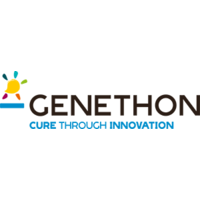Genethon

Our mission
Genethon’s mission is to design gene therapy products for rare diseases, to ensure their pre-clinical and clinical development as well as their production in order to provide patients with access to these innovative treatments.
To meet this challenge, Genethon has acquired the technical and human resources needed to accelerate the medical application of scientific discoveries arising from fundamental research. Our translational research programs are supported by a first-rate technological platform and nearly 230 researchers, Pharm.Ds, M.Ds, Ph.Ds, engineers and technicians who have joined forces in order to develop these innovative treatments.
Gene therapy: the first signs of success for an innovative concept
Genetic disorders are caused by a defective gene that prevents the production of a protein needed by the cell in order to work properly. Gene therapy involves inserting a normal gene into a diseased cell, so that it can make the missing or deficient protein. This therapeutic gene is transported into the cells via carriers called ‘vectors’, usually viruses that have been rendered harmless.
In recent years, gene therapy has proven effective for a few rare genetic diseases. Since 2000, more than fifty patients with immunodeficiency (ADA -SCID , SCID -X1 ) have been treated in France , England and Italy, and have seen their quality of life improve thanks to gene transfer.
suffering from immune disorders (ADA-SCID, X-SCID) in France, England and Italy are capable once again of leading a normal life thanks to gene transfer techniques.
In 2009, there was further good news in France for children suffering from a rare brain disorder called adrenoleukodystrophy.
In 2010, a, young man with beta thalassaemia, a disease of the blood, was also successfully treated with gene therapy.
Today, gene therapy gives hope to many people suffering from previously incurable rare genetic disorders.
30 million Europeans affected by rare diseases
There are currently around 6000 to 8000 known rare diseases. If each affects less than one person in every 2000, the total number of sufferers in Europe is 30 million. Eighty percent of these conditions are genetic in origin, and 65% are severe, chronic, progressive, highly disabling and fatal. Sufferers are usually children.
From this list, neuromuscular conditions, one of the key research targets at Genethon, encompass approximately 200 disorders which affect 30,000 to 40,000 people in France.
With innovation for rare diseases as a springboard, new treatment avenues for common diseases may be opened
The innovative biotherapies currently being developed for rare diseases are also providing the medicine of tomorrow with new treatment tools for the most commonly-occurring disorders. The gene therapy methods that are being developed for rare ocular disorders (retinitis) can for instance be adapted to treat age-related macular degeneration (AMD), the leading cause of blindness among people over 50.
Likewise, the gene therapies developed for rare disorders of the central nervous system may benefit people suffering from common neurodegenerative conditions.